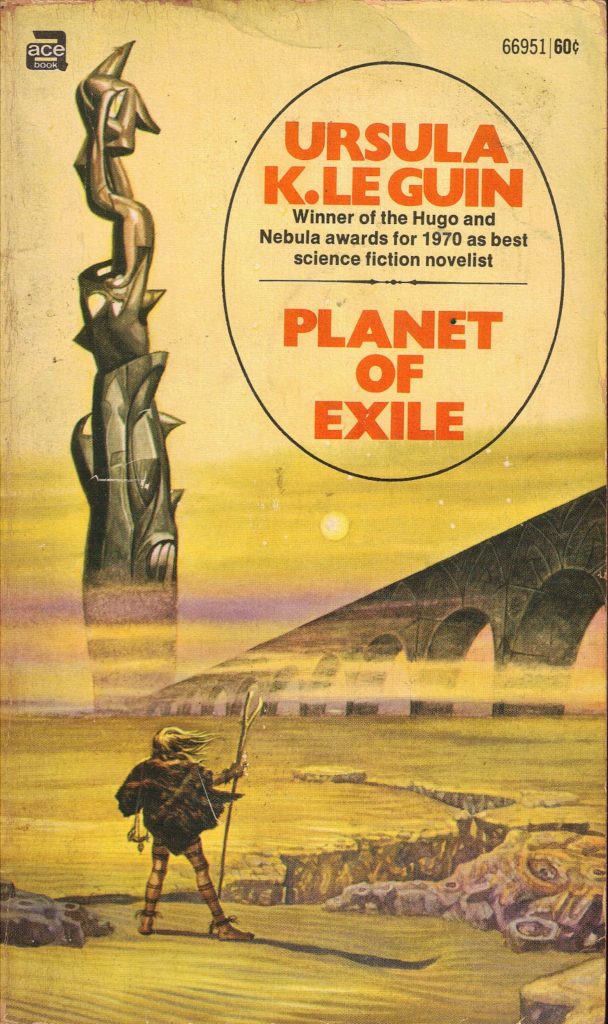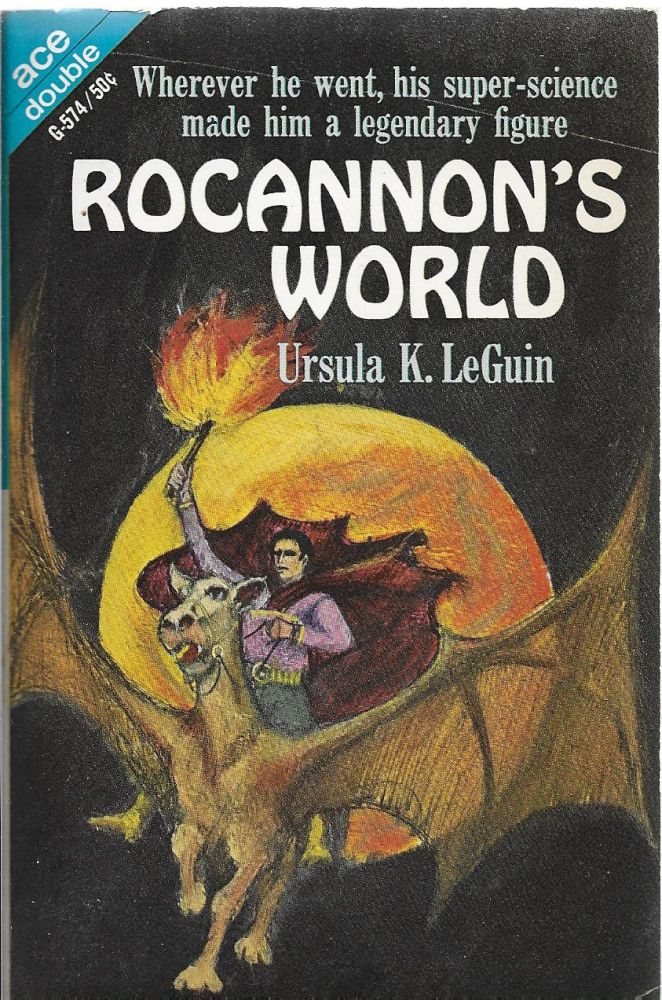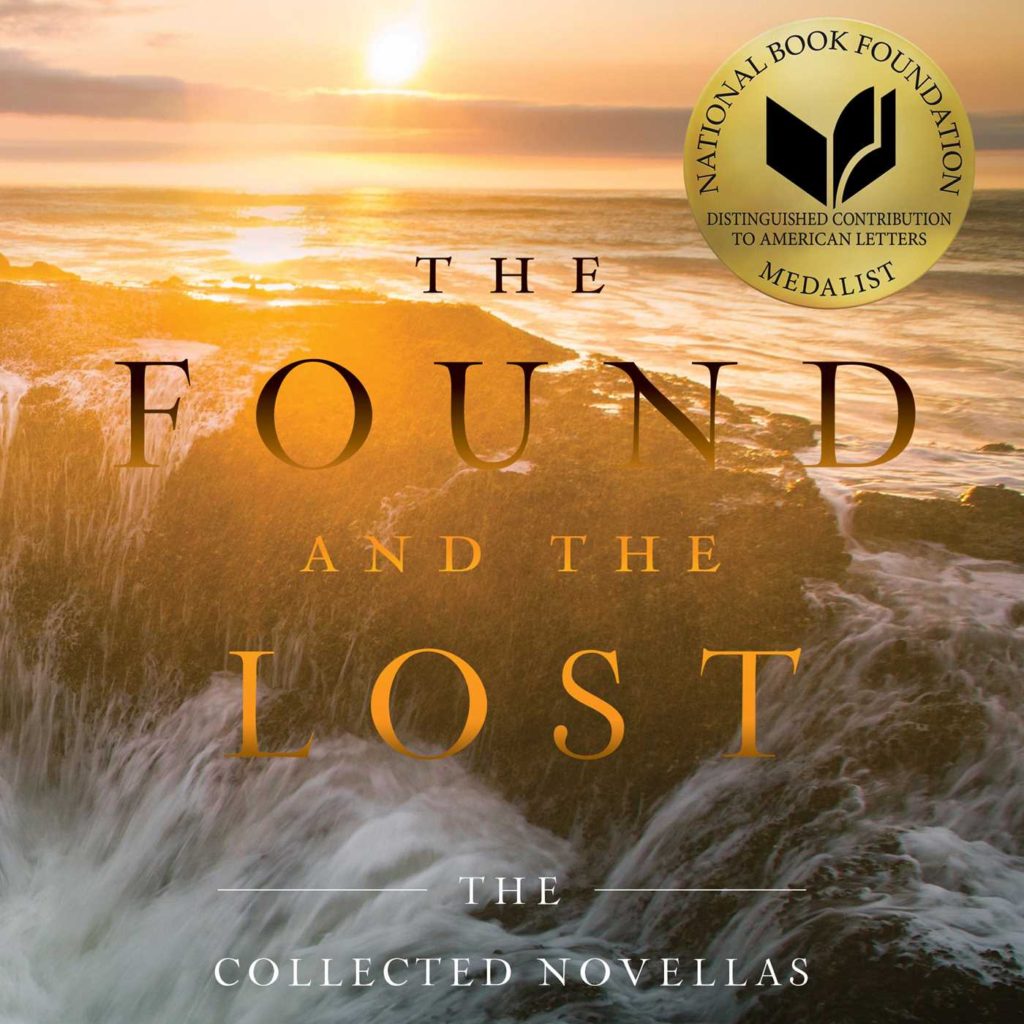Mining the Genre Asteroid: Planet of Exile

Today on Mining the Genre Asteroid, I take you to a Planet of Exile. Last time on Mining the Genre Asteroid, I discussed Ursula K LeGuin’s first novel, Rocannon’s World. This time out, I stay in LeGuin’s Hainish universe and take a look at another early novel of hers set in that verse, Planet of Exile (1966). I look at how this novel extends and builds upon Rocannon’s World, and how it lays foundations for more of the Hainish universe. It is also a rather nifty “under siege novel” that keeps the strengths of character and worldbuilding we saw in Rocannon’s World.
Mining the Genre Asteroid: Rocannon’s World

When I say the words “Ursula K Le Guin and her work,” your first thought is probably either Earthsea or The Left Hand of Darkness or The Dispossessed. Or maybe you think of “The Ones Who Walk Away From Omelas”. LeGuin’s oeuvre, however, is far more than those works. Even within the Hainish verse, there is a host of other in-universe work that Le Guin has written — work that doesn’t get as much attention or play today as The Left Hand of Darkness, the Hainish Cycle’s shining star. The point of this ongoing column is to tell you why works such as this are worth your reading time and attention. Today. In our contemporary moment. And so, in today’s Mining the Genre Asteroid, I’d like to discuss Le Guin’s first published novel, Rocannon’s World.
Excerpt from The Found and The Lost by Ursula K. Le Guin

We here at the Skiffy and Fanty Show are big fans of Ursula K Le Guin. At least one of us thinks she’s Nobel Prize for Literature worthy-good. So, today, we present an excerpt from The Found and the Lost, the collected volume of Le Guin’s novellas from Saga Press. The other volume in the recently published set, covering her shorter fiction, is The Unreal and the Real. Gorgeous covers, the both of them.
Ursula K. Le Guin: A Wellspring of Hope and Joy by John E. O. Stevens #monthofjoy
The literature of imagination, even when tragic, is reassuring, not necessarily in the sense of offering nostalgic comfort, but because it offers a world large enough to contain alternatives and therefore offers hope.” – Ursula K. Le Guin Joy is not something we feel in a vacuum; joy relates us to things, anchors us, unmoors us and sends us off on long voyages. Joy connects and energizes, ensorcels and inspires. It is the result of a powerful instance of interaction; a moment of encounter kindles a feeling of happiness, wonderment, and rejoicing. I can think of many joys I’ve encountered in reading fantastic literature: authors who have invigorated me; ideas that have provoked me; and works that have shattered me. But for persistent joy, for great moments of ecstasy and small moments of guidance, and for a deep feeling of satisfaction, Ursula K. Le Guin remains a primary source. And what makes that joy so special, what often makes the joy I find in fantastika so dynamic, is that it gives me hope.

